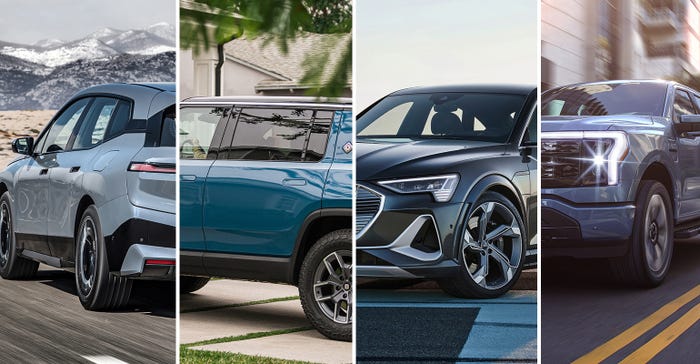The 8 Least Efficient Electric Vehicles of 2022
Not all EVs were created equal: EPA data supplies the specifics.
November 7, 2022

Most of the time when we think about electric vehicles (EVs), we think about range. As important as that may be, an equally important metric for an electric vehicle is efficiency. When the main goal of EVs is to provide a sustainable alternative to internal-combustion engines, how efficiently they convert energy into driving range is the key variable. Here, the key metric is kWh/100 miles.
Last year, Battery Tech made a list of the most inefficient electric vehicles on the market. As we explained then: The US Environmental Protection Agency (EPA) tests the fuel efficiency of gasoline engine vehicles and the energy efficiency of EVs and reports these values to the public. In the EPA tests, a fully charged vehicle is driven on a dynamometer over successive simulated city and highway routes until the battery is depleted. This data also provides the EV’s range reported by the EPA, after the numbers have been subjected to a correction factor to bring it closer to real-world range results. Once a vehicle battery is fully discharged, it is recharged using the manufacturer-supplied charger for that vehicle. The energy consumption is then calculated from the recharging energy, the energy-discharge data from the vehicle, and the distance traveled for each cycle. The recharge energy includes any charging losses due to inefficiencies in the manufacturer’s charger.
This year, we’re updating the list to see if and how it changed and to see if the industry as a whole is moving towards greater efficiency. Read on to see this year’s 8 most inefficient electric vehicles.
About the Author(s)
You May Also Like





